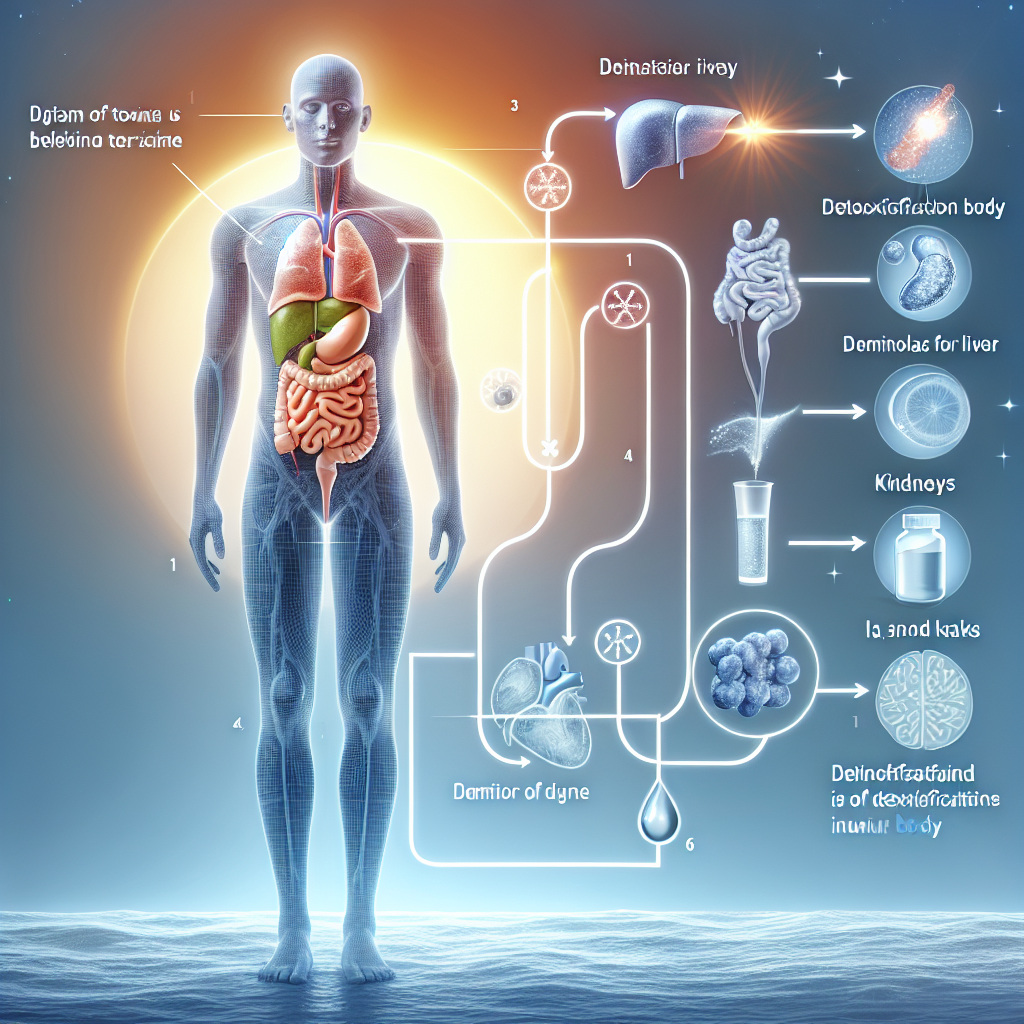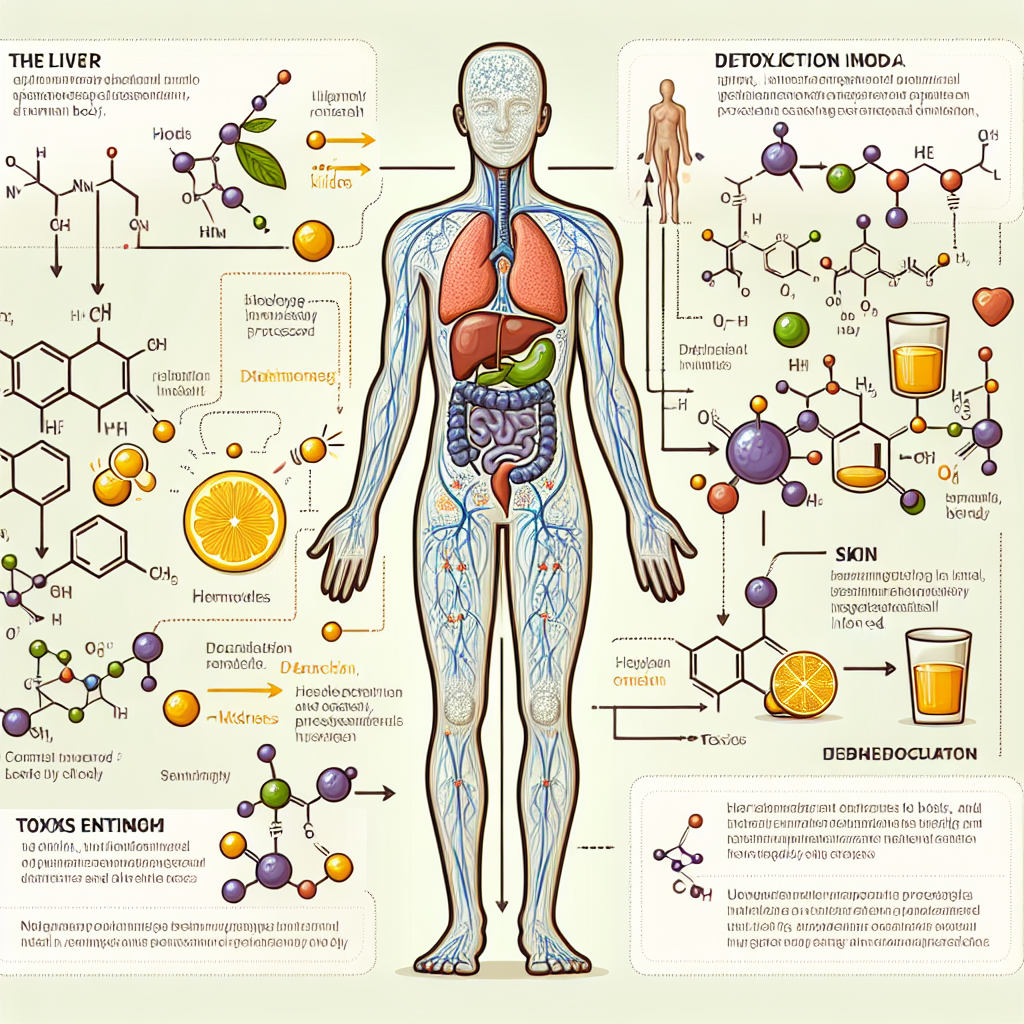What Detox Really Does to Your Body

Discover the real impact of detox on your body! Learn about the benefits and potential risks, and make informed decisions for your health. Visit My Vibrant Vitality now to get all the information you need.
Understanding the True Impact of Detox on Your Body
Detoxification, commonly referred to as detox, has become a buzzword in the health and wellness industry. It is often touted as a quick fix to flush out toxins, lose weight, and improve overall health. However, it’s essential to understand the true impact of detox on your body before embarking on any detox regimen.
Detoxification is a natural process that the body undertakes to eliminate or neutralize toxins. This process primarily occurs in the liver, where harmful substances are broken down and excreted through urine, feces, sweat, and breath. The concept of detox diets, drinks, and treatments is based on the premise that the body needs assistance in this process. However, the efficacy and necessity of these detox methods are subjects of ongoing debate among health professionals.
Detox diets typically involve a period of fasting, followed by a strict diet of fruits, vegetables, fruit juices, and water. Some detox diets also incorporate herbs, teas, supplements, and colon cleanses or enemas. Advocates of detox claim that these diets can promote weight loss, enhance energy, and improve health by removing toxins from the body. However, it’s important to note that these benefits are often short-lived and may not be sustainable in the long run.
Scientifically speaking, there is little evidence to support the effectiveness of detox diets for toxin elimination. The human body is naturally equipped with an efficient detoxification system, which includes the liver, kidneys, digestive system, skin, and lungs. These organs work synergistically to remove toxins and waste products from the body. Therefore, in healthy individuals, there is generally no need to follow a special diet or use other methods to detoxify the body.
Moreover, detox diets can have several adverse effects. Extreme fasting or nutrient restriction can lead to nutrient deficiencies, muscle breakdown, blood sugar problems, and other health issues. Some detox methods, such as colon cleanses, can cause severe dehydration, cramping, bloating, nausea, and vomiting. It’s also worth noting that the weight loss associated with detox diets is usually due to fluid loss and reduced calorie intake, not fat loss. Once you return to your regular eating habits, you are likely to regain the lost weight.
While the idea of a quick fix to cleanse your body may be appealing, it’s crucial to approach detox with a critical eye. A healthy, balanced diet rich in fruits, vegetables, lean proteins, whole grains, and healthy fats is the best way to support your body’s natural detoxification process. Regular physical activity, adequate hydration, and good sleep hygiene are also vital for maintaining optimal health and well-being.
In conclusion, the true impact of detox on your body is a complex issue. While detox diets and treatments may offer temporary benefits, they are not a substitute for a healthy lifestyle. It’s essential to consult with a healthcare professional before starting any detox regimen, especially if you have a medical condition or are taking medication. Remember, the key to long-term health is not a quick fix, but consistent, healthy habits.
The Science Behind Body Detoxification: What Really Happens?

Detoxification, commonly referred to as detox, has become a buzzword in the health and wellness industry. It is often touted as a quick fix to cleanse the body of harmful toxins, boost energy levels, and promote weight loss. But what does detox really do to your body? To understand this, we need to delve into the science behind body detoxification.
The human body is a complex system with its own built-in detoxification mechanisms. The liver, kidneys, lungs, skin, and digestive system all work together to remove harmful substances and waste products from the body. These organs are incredibly efficient at their jobs, and under normal circumstances, they are more than capable of keeping the body clean and healthy.
Detox diets and cleanses, on the other hand, claim to enhance these natural processes by eliminating toxins more efficiently and rapidly. They often involve consuming specific foods or drinks, fasting, or taking supplements. However, the scientific evidence supporting these claims is limited. In fact, many health professionals argue that these detox methods can do more harm than good.
When you drastically change your diet or fast for extended periods, your body goes into survival mode. This can lead to a slower metabolism, muscle breakdown, and nutrient deficiencies. Furthermore, many detox diets are low in protein, which is essential for the proper functioning of the detoxification organs. Without adequate protein, these organs may not function optimally, potentially leading to an accumulation of toxins in the body.
Moreover, many detox supplements and drinks contain laxatives, which can cause dehydration and electrolyte imbalances. These imbalances can disrupt the normal functioning of the heart and other vital organs. Additionally, frequent use of laxatives can lead to dependency, making it difficult for your body to produce bowel movements without them.
While the idea of a quick fix is appealing, the best way to support your body’s natural detoxification processes is through a balanced, nutrient-rich diet and regular exercise. Consuming a variety of fruits, vegetables, lean proteins, and whole grains provides your body with the nutrients it needs to function optimally. Regular exercise, on the other hand, boosts circulation and helps remove waste products through sweat.
Hydration is also crucial for detoxification. Water aids in digestion, helps transport nutrients, and assists in removing waste products from the body. Therefore, drinking plenty of water throughout the day can support your body’s natural detoxification processes.
In conclusion, while detox diets and cleanses may promise quick results, they can potentially harm your body and disrupt its natural detoxification processes. Instead of resorting to these quick fixes, focus on maintaining a balanced diet, staying hydrated, and exercising regularly. These lifestyle changes will not only support your body’s natural detoxification processes but also promote overall health and well-being. Remember, when it comes to health, there are no shortcuts. It’s all about making sustainable lifestyle changes that support your body’s natural functions.
Unveiling the Effects of Detox on Your Body: Myths and Facts
Detoxification, commonly referred to as detox, has become a buzzword in the health and wellness industry. It is often touted as a quick fix to eliminate toxins from the body, boost energy levels, and promote weight loss. However, the concept of detox is surrounded by a myriad of myths and misconceptions. This article aims to unveil the effects of detox on your body, separating the facts from the fiction.
Detoxification is a natural process that the body undertakes to eliminate or neutralize toxins. This process is primarily carried out by the liver, kidneys, and digestive system. The concept of detox diets and cleanses is based on the premise that the body needs assistance in this process. However, it’s important to note that there is little scientific evidence to support the effectiveness of these diets and cleanses. In fact, the body is perfectly capable of detoxifying itself without any external aid.
One of the most common myths associated with detox is that it leads to rapid weight loss. While it’s true that individuals may experience temporary weight loss during a detox, this is primarily due to water and muscle loss rather than fat loss. Once the individual resumes their regular diet, the weight is often quickly regained. Therefore, detox diets are not a sustainable or healthy method for long-term weight loss.
Another misconception is that detox can boost energy levels. While some people report feeling more energetic during a detox, this is likely due to the elimination of processed foods, caffeine, and alcohol from their diet, rather than the detox process itself. A balanced diet, regular exercise, and adequate sleep are more effective ways to boost energy levels.
Detox diets often involve fasting or consuming a limited range of foods, which can lead to nutrient deficiencies. This can have a negative impact on your health, leading to symptoms such as fatigue, dizziness, and low blood sugar levels. Furthermore, some detox diets advocate the use of laxatives, which can disrupt the balance of gut bacteria and lead to dehydration.
Despite these potential risks, it’s not all doom and gloom when it comes to detox. Incorporating certain elements of a detox diet, such as increasing your intake of fruits and vegetables, drinking more water, and reducing your consumption of processed foods, can have a positive impact on your health. These changes can help to support your body’s natural detoxification process, boost your immune system, and improve your overall wellbeing.
In conclusion, while the concept of detox is often surrounded by hype and misinformation, there are some aspects that can be beneficial to your health. However, it’s important to approach detox with a critical eye and understand that it is not a quick fix for weight loss or a substitute for a healthy lifestyle. Always consult with a healthcare professional before embarking on a detox diet or cleanse to ensure that it is safe and suitable for your individual health needs. Remember, the key to good health is not found in a bottle or a magic pill, but in a balanced diet, regular exercise, and a healthy lifestyle.